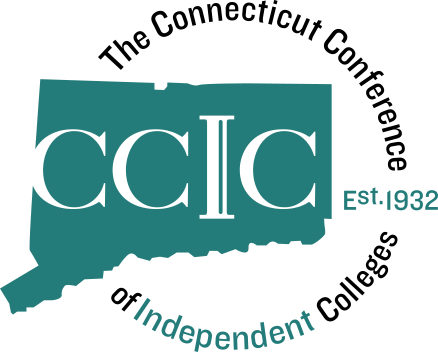Report: 15 Independent Colleges Have $16.5 Billion Impact on Connecticut
/The economic impact to the State of Connecticut from its fifteen non-profit independent colleges and universities is $16.5 billion annually, according to a just completed study released by the Connecticut Conference of Independent Colleges (CCIC).
“The non-profit independent higher education sector is a key driver in Connecticut’s economy,” said Jennifer Widness, President of CCIC. “Collectively, our member institutions are economic engines in this state, serving as magnets attracting students and their families, alumni and tourists that all spend money locally yet use minimal municipal services. They are large employers in the communities (the largest, in some instances) and collectively employ nearly 30,000 people statewide.”
The study, conducted by Mark Gius, Ph.D., Professor of Economics at Quinnipiac University, used FY21 data.
“In order to estimate the economic impact of the independent colleges and universities of Connecticut, I obtained expenditure data from the universities and university visitors and students,” Gius explained. “I then calculated induced spending which is spending that is generated by university and university-associated spending. The total economic impact of the institutions of CCIC is the sum of the direct and induced spending.”
“Connecticut’s independent colleges and universities are known for preparing students for career success and engaged citizenship, advancing research and knowledge, and promoting arts and culture, but they also have a tremendous impact on their local and regional economies,” said Rhona Free, Ph.D., President of the University of Saint Joseph and Chair of the CCIC Board of Directors. “Direct expenditures for supplies, local spending by students and campus visitors, and major contracts for construction – along with the earnings of the tens of thousands of faculty and staff – enhance communities throughout Connecticut. “
Among the findings, the fifteen independent colleges and universities in Connecticut:
• Generate a total impact on the Connecticut economy of $16.52 billion representing a direct economic impact of $10.1 billion in direct institutional spending for employee spending, university purchases, capital expenditures, student, visitor, and alumni spending, as well as another 6.4 billion in induced spending.
• Created/retained 127,264 jobs in Connecticut in 2021 as a result of the economic activity generated by the sector.
• Supported over 227,000 alumni living in the state who had annual earnings of $18.3 billion that generated significant taxes and spending on the local level.
• Are magnets for students and visitors who spent at least $831.3 million.
Key facts about the sector’s role in educating Connecticut’s workforce, according to the study findings, include:
• Enroll over 80,000 students statewide, including 50% of all undergraduate college students and 65% of all graduate students at 4-year and above public and private institutions.
• Award 46% of all bachelor’s degrees earned annually and 67% of the graduate degrees, master’s and higher.
• Award 44 - 67% of four-year and above degrees given in key economic development cluster areas such as bioscience, engineering and computer science.
• Educate 46% of all minority undergraduate students enrolled at public and non-profit 4-year institutions.
• Award over $1.28 billion in institutional grant aid on an annual basis.
The Connecticut Conference of Independent Colleges (CCIC) is an association that represents 15 accredited nonprofit independent colleges and universities in Connecticut: Albertus Magnus College, Connecticut College, Fairfield University, Goodwin University, Mitchell College, Quinnipiac University, Rensselaer at Hartford, Sacred Heart University, Trinity; College, University of Bridgeport, University of Hartford, University of New Haven, University of Saint Joseph, Wesleyan University and Yale University.

































